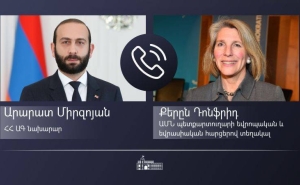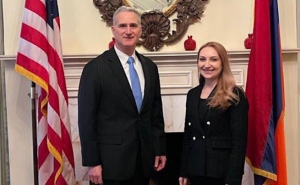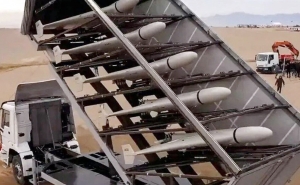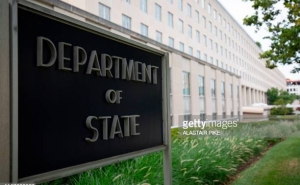 Trump's Address to the Muslim World: What Changes to Expect?
Trump's Address to the Muslim World: What Changes to Expect?
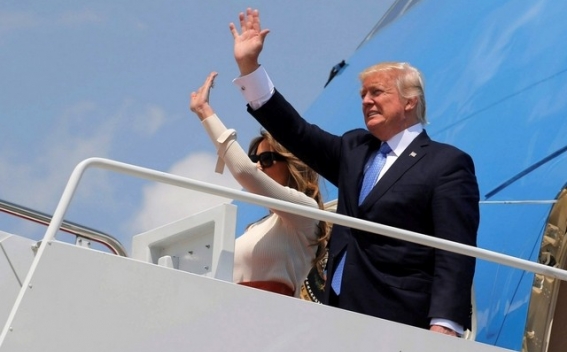
During the weekend the first foreign visit of the US President Donald Trump took place to Saudi Arabia. The choice of the first visit was traditionally highlighted in the US political culture. Based on that choice, it was possible to make assumptions on the priorities of a US president in his foreign policy. If previously, the first visits of the US president took place to neighboring countries and to European ally countries, Donald Trump by the choice of the country for his first foreign visit, deviated from the traditional line.
The choice of the country was also interesting by the fact that it was a Muslim country. As we know, during this period, Trump became known for his sharp statements and steps (such as an order banning the entry of the residents from the majority-Muslim countries to the USA) towards the Muslim countries, which became a cause for accusations in address of Trump of having a biased attitude towards the Muslim world. The visit was also interesting by the fact that for the first time a new format - Arab Islamic- American summit took place.
During the summit, the US president delivered a long speech before the Islamic world leaders, which contained a number of important messages on the main directions of the US foreign policy in the Middle East. Below, let’s refer to those main messages.
Before turning to the main emphases of Trump’s speech, it is important to note that during his speech, the US president announced the start of two new initiatives. First, the foundation of the Global Center for Combating Extremist Ideology, on the basis of the activities of which will be the leading role of the Muslim-majority countries in combating radicalization, as Trump noted. Second was an agreement to prevent the financing of terrorism, called the Terrorist Financing Targeting Center, which will be co-chaired by the United States and Saudi Arabia, and joined by every member of the Gulf Cooperation Council.
Referring to the main emphasis of the speech, we should note that Trump emphasized with a red line the fact that each of the Muslim countries should bare its share of responsibility in the fight against terrorism and do not wait for "American power to crush this enemy for them." To increase the sense of responsibility among the Muslim countries, Trump underlined the fact that by various estimations more than 95 percent of the terrorism victims are the Muslims. By the way, this is one of the main peculiarities of Trump’s foreign policy: to redistribute the share of responsibilities no longer bearing the whole share of them in relations with its allies. The same logic applies to the US relations with its NATO allies demonstrated so far.
Second, the US president openly stated that they are going to review those tools in the foreign policy that have not worked so far. According to the US president, from now on their decisions will be based on "real-world outcomes – not inflexible ideology." This corresponds to the expected transition from the foreign policy based on ideology to the real politics. In such a case values will not be subordinated to political interests, notwithstanding the fact that Trump called such a politics "Principled Realism rooted in common values and shared interests."
Third, counterpoising to his opponents accusations of having biased attitude towards the Muslim world, in his speech Trump tried not to draw any dividing lines between Muslim and Christian people, the struggle against terrorism calling not a struggle among religions, sects and civilizations, but as he called it "a battle between barbaric criminals who seek to obliterate human life, and decent people of all religions who seek to protect it."
To sum up, we can state, that in the US President speech addressed to the Muslim world, some changes in the US foreign policy were outlined – redistribution of responsibility, in case of which each of the allies should bare its share of responsibility. Of course, from this, we cannot assume that the US is going to weaken its positions in the region. The US will continue to preserve its presence in the region deepening bilateral relations with its allies, from whom it will have concrete expectations based on the practical relations by the principle "what for what."
Among the US regional allies the first place will have Saudi Arabia. It is not by chance, that the first foreign visit of the US president was particularly to this country. It is not by chance either that during his first visit he signed an agreement that will invest almost $400 billion in our two countries (the one that also included the announcement of a $110 billion Saudi-funded defense purchase).
Other materials on this subject
- Turkey is sending Cold War-era cluster bombs to Ukraine – FP The weapons are designed to destroy tanks by bursting into smaller submunitions, which can linger on the battlefield for years if they do not immediately explode. Each round scatters about 88 bomblets.
- Los Angeles mayor and city council president address US president on Lachin corridor issue Thank you, Mayor Bass, for joining me in communicating to President Biden the urgent need for U.S. leadership to lift the blockade and bring humanitarian relief to the people of Artsakh.
- US Committed to Helping Armenia and Azerbaijan Resolve Issues Peacefully: Blinken Spoke With Pashinyan The Secretary reiterated our commitment to helping Armenia and Azerbaijan resolve issues peacefully.
- Iran to Submit Final Conclusion Over Nuclear Deal Revival by Midnight In comments on Monday, Amirabdollahian said Iran is going to send its final conclusion about the JCPOA talks to the European coordinator in written form at midnight.
- Erdogan, Biden Might Meet in September- Media Turkey plans to buy 40 F-16 fighter jets from the US and upgrade another eighty. US President Joe Biden stated that he expects to receive the approval of the [US] Congress to sell F-16 fighter jets to...
-
 17:08
17:08The regular session of the Anti-corruption Policy Council takes place in Jermuk
-
 15:05
15:05The Prime Minister sends congratulatory messages to the supreme leader of Iran and the President of Iran
-
 11:11
11:11Armenia sends earthquake aid to Turkey
-
 10:43
10:43Commemoration of the Pontiff St. Sahak Partev
-
 09:16
09:16Some roads are closed and difficult to pass in Armenia
-
 19:55
19:55Phone conversation of the Foreign Minister of Armenia with the U.S. Assistant Secretary of State for European and Eurasian Affairs
-
 18:30
18:30Prime Minister Pashinyan and President Khachaturyan meet
-
 18:20
18:20Ararat Mirzoyan with Co-Chairman of the OSCE Minsk Group of France Brice Roquefeuil
-
 17:01
17:01Humans could land on Mars within 10 years, Musk predicts
-
 16:45
16:45France, US urge 'immediate' end to Nagorno Karabakh blockade
-
 16:01
16:01Blockaded Nagorno Karabakh launches fundraiser to support quake-hit Syria
-
 15:59
15:59Earthquake death toll in Turkey rises to 18,342
-
 15:43
15:43Ararat Mirzoyan Held a Telephone Conversation with Sergey Lavrov
-
 15:06
15:06French president rules out fighter jet supplies to Ukraine in near future
-
 14:47
14:475 Day Weather Forecast in Armenia
-
 14:44
14:44President Vahagn Khachaturyan wrote a note in the book of condolences opened in the Embassy of Syria in Armenia
-
 14:20
14:20Azerbaijan’s provocations impede establishment of peace and stability – Armenian FM tells Russian Co-Chair of OSCE MG
-
 12:57
12:57France representation to OSCE: Paris calls on Azerbaijan to restore freedom of movement through Lachin corridor
-
 11:40
11:40Command of Kosovo forces highly appreciated preparation of Armenian peacekeepers
-
 10:16
10:16The United States withdrew from sanctions against Syria for six months the provision of assistance after the earthquake
day
week
month
Humidity: %
Wind: km/h


